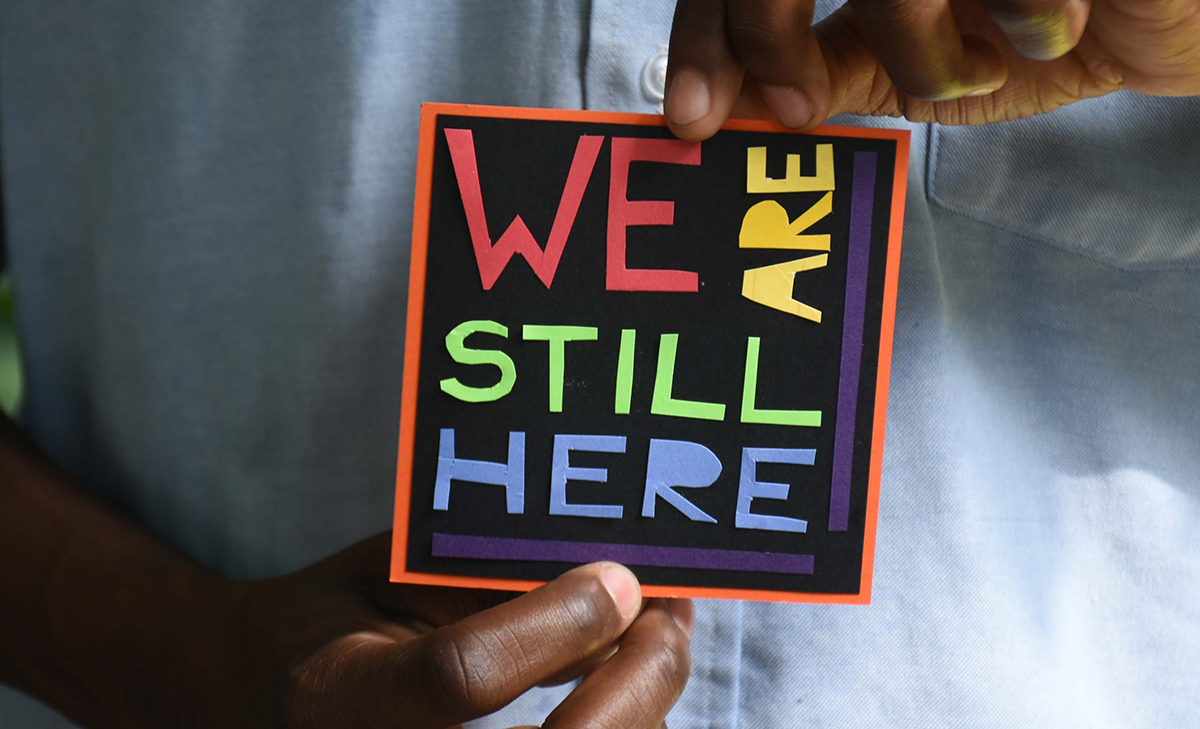News Details
Gender & Sexuality Policy Lab Bridges Gap Between Public, Private Institutions

Authored by: Jessica Bautista
Faculty & Research, Student Life, Alumni
03/10/17
A new project focusing on intersecting social identities and systems has put University of Pennsylvania School of Social Policy & Practice (SP2) researchers at the helm of a cutting-edge hub that can significantly change the lives of the LGBTQ community and beyond.
The SexGen Policy lab, co-lead by founding SP2 faculty members Amy Castro Baker, PhD, MSW, and Amy Hillier, PhD, MSW, aims to build and disseminate knowledge at the intersection of critical theory, gender, and sexuality with a distinct emphasis on applied policy, economic, and housing research.
According to the co-founders, the lab reconceptualizes policy work across public and private institutions to inform the lives of people experiencing marginalization in society and the housing economy–particularly LGBTQ youth who are most at risk.

Amy Castro Baker and Amy Hillier
“We wanted to create a space that provides the research scaffolding to support student research focused on gender and sexuality,” Castro Baker said. “It creates an entry point and mentorship to Penn students interested in these topics or populations that can be really difficult to find.”
The lab, according to Baker, is specifically focused on creating strong links with institutions outside of the academy.
“Too often social science research is conducted apart from the populations we study,” Baker continued. “This contributes to the growing disconnect between the public and the scientific enterprise. Both parties lose when research is confined to the academy.”
“Second, research focused on gender and sexuality is often framed from a posture of moral panic or solely focused on populations we label as at-risk. We do not ignore the very real risks that exist, but we approach our work on gender with an assumption of resilience, wholeness, and strength,” she added.
In addition to Castro Baker and Hillier, the lab builds and disseminates knowledge with the know-how and efforts of SP2 students and alum whose work focuses on multiple disciplines and topics, including the intersection of race, class, gender, and mental health with mass incarceration, LGBTQ advocacy, wealth inequality, juvenile justice, housing needs, health care, international human rights, socio-legal studies, and technology access among refugees.
Two graduate students in SP2’s Master of Social Work (MSW) program and two MSW alum are currently involved with the lab.
Real-World Significance and Tangible Impact
Since the lab came together, the resource has been incredibly well-received by peers, students, and researchers, and more significantly, has contributed to tangible impact in the community.
“Last spring, we worked with youth and staff from The Attic LGBTQ Youth Center to draft a policy for the School District of Philadelphia supporting transgender and gender non-conforming youth,” Hillier said. “The School Reform Commission unanimously approved the policy in June. With a wonderful group of colleagues across the city, we trained more than 5,000 K-12 teachers on the policy about core issues such as gender identity and gender expression, the need for adults to honor students’ pronouns and chosen names, and the importance of eliminating gender-segregated activities in schools. While there is still need for more training to achieve full implementation of the policy, we are proud to have helped establish these basic safeguards for the rights of trans / GNC youth and to have moved the needle on teachers’ understanding of basic concepts around gender and sexuality.”
In addition to the influence and real-world significance the project has proven to have, Castro Baker commented on the importance of the lab’s collective data also being translated for a public audience – the average American and policymakers. The group’s findings have already made its way into the hands of the corporate sector – employers who perhaps want to better support their employees.
“We’re also working directly with the city and community-based agencies on the issue of LGBT youth experiencing homelessness,” Castro Baker said. “Rather than conduct that study from afar, we include their staff and youth in study design. On more than one occasion we have scrapped research questions or methods based on feedback from youth. They know their community better than we do.”